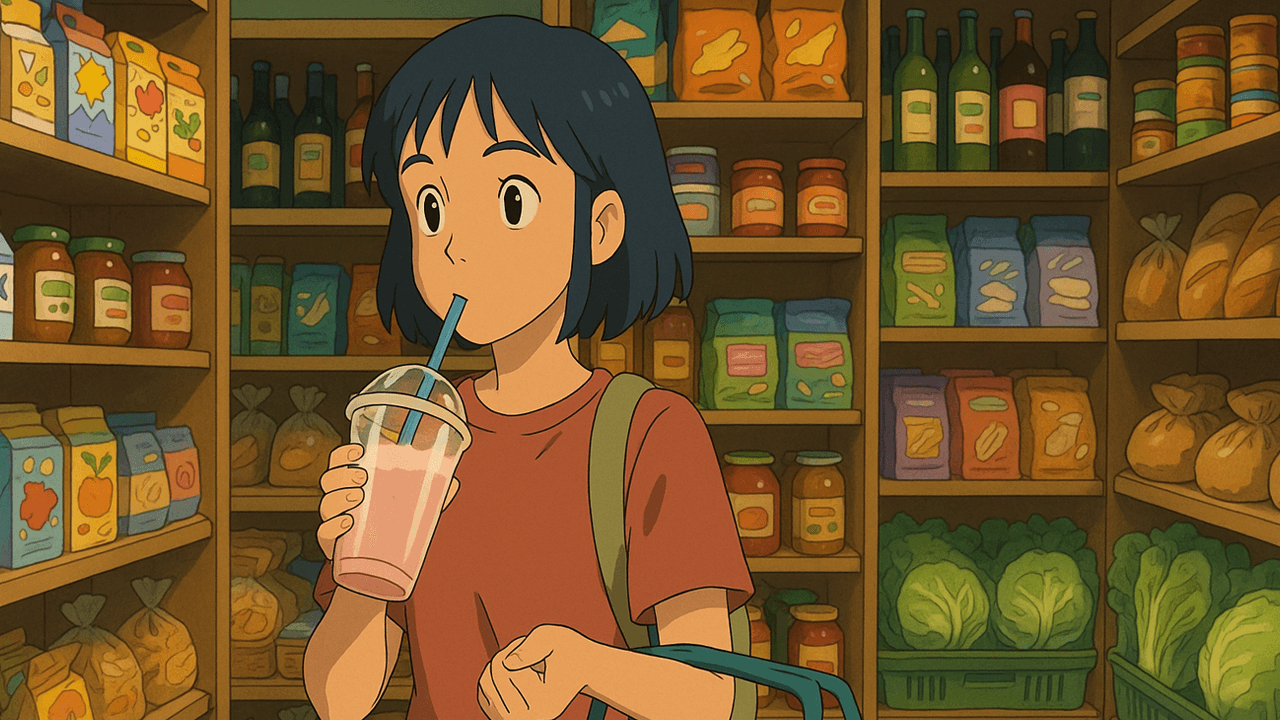Gen Z are redefining everyday spaces as indulgent outposts amidst a rising cost of living.
From bespoke suprettes and deli’s, to viral institutions like Erewhon and Daylesford, walking into a supermarket these days feels more like entering a wellness spa.
Influencers sip $18 smoothies next to yoga instructors perusing adaptogenic mushrooms, while tote bags branded with minimalist serif fonts signal allegiance to the church of curated wellness. This is not just grocery shopping. This is a lifestyle.
Welcome to the era of the niche supermarket – the new mecca of luxury.
Niche supermarkets like Erewhon in Los Angeles, Daylesford in the UK, and Maison Plisson in Paris are no longer just functional spaces. They are social outposts, wellness sanctuaries, and, crucially, identity markers.
For Gen Z, raised on a digital diet of Pinterest boards, TikTok hauls, and Instagram grids, the supermarket has become an extension of aesthetic life. And brands are paying attention. Modern specialty supermarkets are increasingly designed with intentionality: terrazzo countertops, natural lighting, and polished concrete floors that wouldn’t look out of place in a boutique hotel. Every corner is Instagrammable because it’s designed to be.
At its core, this trend feeds into a broader shift: the industrialisation of wellness as an exclusive, privileged pursuit. Social media has transformed everyday experiences like the once-dreaded food shop into indulgent activities. Nourishment has become layered with status and curation.
In food halls like Harrod’s and Erewhon, some of the most expensive groceries you’ve ever seen – like an infamous bag of ice for over $30, are no longer ‘just food’, but an investment into a highly aestheticised version of self-care.
Journalist Maeve Galea playfully describes this phenomenon as ‘the yassification of grocery stores’.
‘According to a McKinsey & Company report, groceries are increasingly a spending priority for millennials and gen Z, beating out restaurants, travel, beauty and fashion. And it’s giving rise to a new generation of very posh provisions and super-chic supermarkets, whose primary purpose is not always providing sustenance.’
Ironically, this hyper-curated, wellness-forward way of shopping is flourishing as the cost of living crisis bites deeper. According to the Financial Times, grocery prices in the UK have surged by nearly 25% since 2021. But rather than turning away from premium goods, young people are leaning in – selectively.
No longer tethered to traditional markers like designer handbags or expensive jewellery, luxury for Gen Z has become about micro-indulgence. From elevated pantry items to an afternoon spent browsing aisles of fermented goods and gluten-free pastries – the mundane has been bolstered to the exclusive.




















